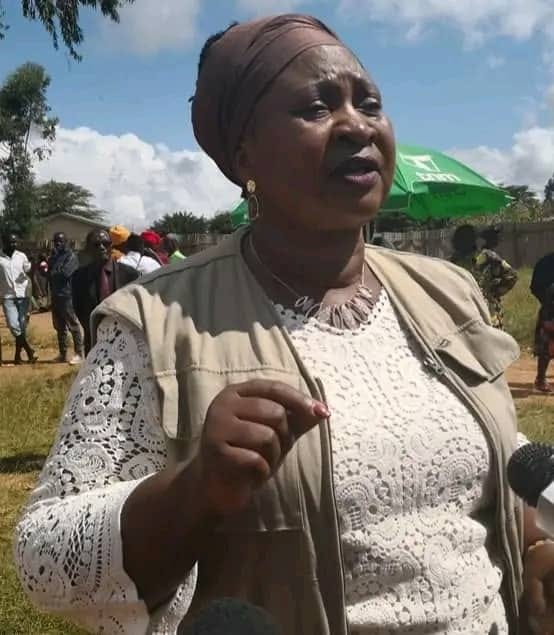Minister Concerned with Identification Irregularities
The Shock Emergency Cash Transfer Programme has distributed K1.8 billion to 12,000 beneficiaries in Mzuzu City.

MZUZU, Malawi — The Minister of Gender, Community Development and Social Welfare, Jean Sendeza, has expressed serious concerns regarding irregularities in the beneficiary identification process for safety net programmes, writes Lumbanie Kaunda.
During her visit to Kawuwa Primary School in Mzuzu City on Saturday 18 May 2024, where she met beneficiaries of the Shock Emergency Cash Transfer Programme, Sendeza highlighted significant issues affecting the fair distribution of aid.
Sendeza revealed that reports have surfaced about numerous irregularities in the beneficiary identification procedures.
These issues have led to the exclusion of eligible individuals from the aid programmes, undermining the initiative's goal to support those in need.
"For instance, I received a complaint that one of the eligible individuals with disability, Grace Mhango, from Luwinga in Mzuzu was missed from the beneficiary list. This is one of the indications that the process was not conducted in a just manner," Sendeza remarked.
The government's Shock Emergency Cash Transfer Programme aims to mitigate the adverse effects of economic shocks on vulnerable groups, including the elderly, people with disabilities, and female and orphan-headed households.
The Minister emphasized the equal necessity of such interventions for urban and rural populations, noting the broad impact of economic challenges, including natural disasters like Cyclone Freddy, the El-Nino phenomenon, the COVID-19 pandemic, and geopolitical instability.
Sendeza urged local authorities to uphold integrity within the structures responsible for identifying beneficiaries to prevent the same individuals from benefiting from multiple safety net programs.
"No individual should benefit from both Agricultural Input Programme, free food distribution, and Social Cash Transfer Programme among others," she asserted.
Dr. Lilian Chirwa, Director of Health and Social Services for Mzuzu City Council, acknowledged delays in programme implementation due to coordination issues among various stakeholders.
"We received several complaints from eligible beneficiaries but left out by the structures which were mandated to carry out the identification process, as such we appeal to government to consider extending the support to such people," Chirwa stated.
Despite these challenges, beneficiaries like Pauline Gondwe of Masasa expressed gratitude for the programme.
Gondwe plans to use her K150,000 to pay school fees for her child and invest in a village savings and loan group.
Another beneficiary, Nkhambule Kamanga, intends to contribute her funds to a community savings and investment group focusing on piggery business.
The Shock Emergency Cash Transfer Programme has distributed K1.8 billion to 12,000 beneficiaries in Mzuzu City, reflecting the government's commitment to alleviating economic hardships among its most vulnerable citizens.


